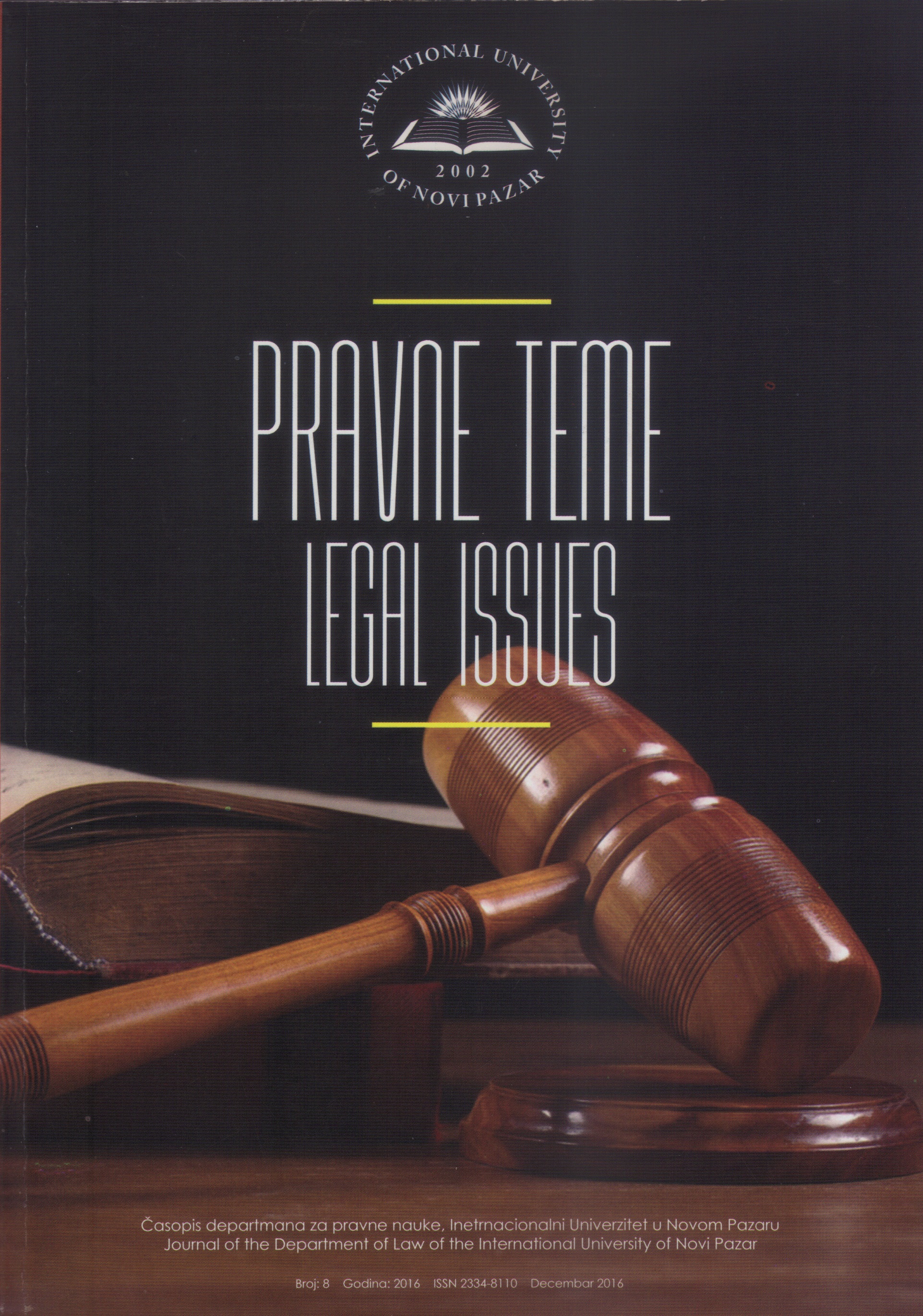THE LISBON TREATY AND THE POLICE AND JUSTICE COOPERATION:
SPECIAL EMPHASIS TO THE EUROPEAN PUBLIC PROSECUTOR’S OFFICE
THE LISBON TREATY AND THE POLICE AND JUSTICE COOPERATION:
SPECIAL EMPHASIS TO THE EUROPEAN PUBLIC PROSECUTOR’S OFFICE
Author(s): Ivica JosifovićSubject(s): Law, Constitution, Jurisprudence, Criminal Law, EU-Legislation
Published by: Интернационални Универзитет у Новом Пазару
Keywords: Justice;Cooperation;Lisbon Treaty;European Public Prosecutor’s Office
Summary/Abstract: Criminal law at the European Union level has traditionally been dealtthrough the concept of intergovernmental cooperation and gains its legal designationin the Maastricht Treaty, as part of the Justice and Home Affairs. The AmsterdamTreaty created the Area of Freedom, Security and Justice, but the Tampere Counciland the Hague Programme took the notion of European criminal law through theprocess of mutual recognition.This paper is two-fold. First, the purpose of this paper is to present thechanges in the Area of Freedom, Security and Justice according the Lisbon Treaty,especially the Police and Justice Cooperation in criminal matters. The three pillarstructure is replaced and the competences in the Area of Freedom, Security andJustice are increased and provisions transferred in the Treaty on Functioning of theEuropean Union and within the ambit of the Court of Justice’s jurisdiction. It aims toanswer what is the meaning of the Lisbon Treaty for the European Criminal Law. Onone side, criminal law provisions seriously endanger individual rights, and on theother side, criminal law provisions reflect the basic values of society and thereforereserved for national legislations. However, this traditional understanding of criminallaw is not appropriate to the European Union integration level. Having in mind theseissues, member-states transferred several competences to the European Union inorder to undertake measures in the area of criminal law, criminal procedure andcooperation in criminal matters.Second, the paper presents a comprehensive interpretation of the widelydiscussed issue regarding the establishment of the European Union PublicProsecutor’s Office. Review and answers on several previous questions are given,opening the possibility for establishing the European Union Public Prosecutor’s Office.Further, the paper makes research of the Lisbon Treaty and articles 85 and 86, as wellas some of the issues necessary for consideration, not only from practical point ofview, but also to reach an agreement among member-states. Having in mind thataccording these articles no such function was created, the conclusion contains severalrecommendations and directions for the perspective of the European PublicProsecutor by creating is as an independent entity with necessary cooperation fromEurojust. In conclusion, remarks and suggestions are pointed regarding the future ofthe European criminal law.
Journal: Pravne teme
- Issue Year: 4/2016
- Issue No: 08
- Page Range: 33-52
- Page Count: 20
- Language: English

